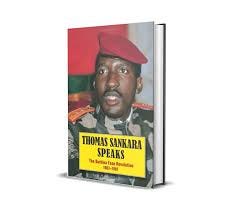In my commentary of August 11, I reviewed the work of Cuban scholars on the recent coups in West Africa (“Scholars in Cuba explain: Coups in Niger, Burkina Faso, and Mali seek sovereignty for Africa”). In that discussion, reference was made to Thomas Sankara, the central leader of a people’s revolution in Upper Volta in the 1980s, as a leader who anticipated certain dynamics of the current people’s movement in West Africa. In my commentary today, I review the political theory and action of Thomas Sankara, drawing upon two collections of his speeches edited by Pathfinder Press: Thomas Sankara Speaks: The Burkina Faso Revolution, 1983-1987 (published in 1988, 2007); and We Are Heirs of the World’s Revolutions: Speeches from the Burkina Faso revolution, 1983-1987 (published in 2002, 2007).
Following World War II, the United Kingdom, France and other European colonial powers, facing massive anti-colonial peoples’ movements, were coerced to concede independence to nearly all…



